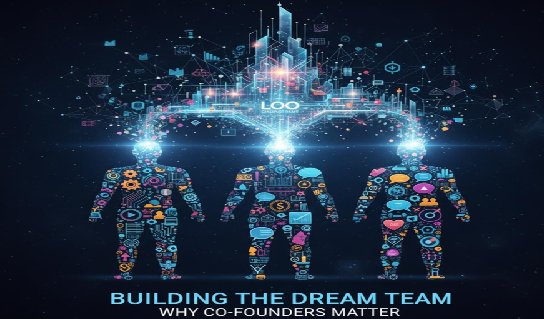What if your business could not only turn a profit but also genuinely change the world?
The modern business world is undergoing a powerful shift. The traditional divide between profit and purpose is dissolving, leading to a new era where they are seamlessly blended. Innovative startups are proving that addressing societal challenges isn't just ethical it's a core driver of long-term success.
Blending Profit with Purpose :
This new approach embeds social impact into the business model, creating sustainable enterprises that generate revenue by solving real-world problems. This is driven by the ESG Imperative. Proactive management of Environmental, Social, and Governance factors from reducing carbon footprints to ensuring fair labour signals a responsible and resilient business to investors and consumers.
Why ESG is the Future of Your Business?
Environmental, Social, and Governance (ESG) factors are no longer just "nice-to-haves"; they are critical metrics for investors evaluating a company's risk and future value. Proactive Management of these three metrics is necessary:

- Environmental (E): Focuses on the planet (e.g., carbon emissions, waste management, renewable energy).
- Social (S) : Focuses on people (e.g., diversity, labour standards, community engagement, supply chain ethics).
- Governance (G) : Focuses on leadership (e.g., board composition, executive compensation, and anti-corruption).
- This movement is particularly strong in India, where social entrepreneurs are tackling complex national challenges with scalable, market-based solutions.
Examples of Impact-Driven Companies :

- SELCO India :
Purpose: Provide affordable solar energy for the needed once.
Impact Data: Installed solar powered systems for over 200,000 households across India, demonstrating financially viable, decentralised renewable energy models. - Zomato (CSR & Sustainability Focus) :
Purpose: Address food waste/hunger and promoting restaurant sustainability.
Impact Data: Through its non-profit arm, Feeding India, Zomato recovers surplus food, distributing millions of meals annually. They also strongly promote sustainable packaging and plastic reduction in the food delivery ecosystem, supporting the 'E' in ESG. - Patagonia (Global) :
Purpose: Environmental activism and sustainable practices.
Impact Data: Donates 1% of all sales to environmental non-profits (1% for the Planet). In 2022, the company's ownership was structured so that profits not reinvested go towards fighting the climate crisis, demonstrating an integrated commitment.
Startup Social Impact Blueprint :
Every new venture must be a force for good. Here's how to integrate impact:
- Product as the Solution : Your core product must directly improve lives or protect the environment.
- Embed ESG: Make strong ESG standards (like ethical sourcing or community hiring) a fundamental business cost, not just marketing.
- Define Measurable Impact: Quantify your social contribution (e.g., "create 500 new jobs").
- The future of business demands that financial success be closely tied to making the world a better place.
Conclusion: The Business of a Better World :
The future of business demands a holistic vision where financial success is closely tied to making the world a better place. Social entrepreneurship isn't a trend; it's a necessary evolution.
Are you ready to build the next generation of impact-driven enterprises?




